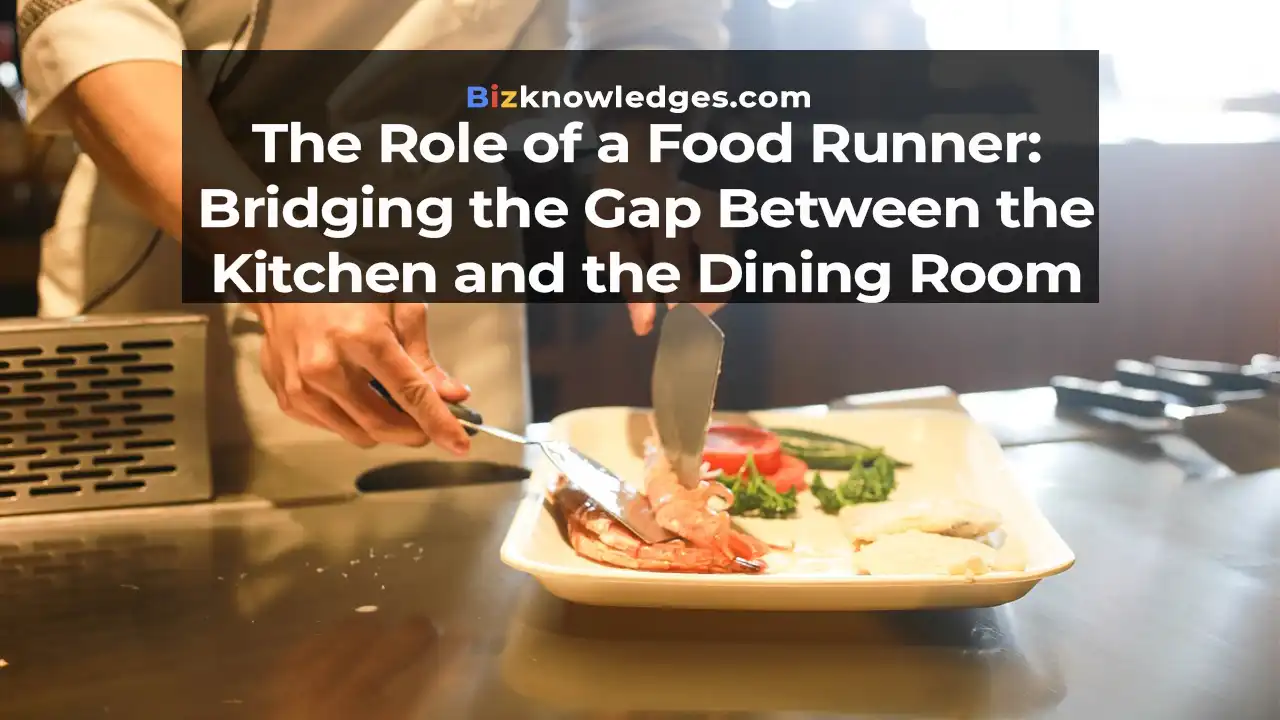The Role of a Food Runner: Bridging the Gap Between the Kitchen and the Dining Room

In the fast-paced world of restaurants, every role plays a crucial part in creating a seamless dining experience for guests. Among these roles, the Food Runner is often the unsung hero, ensuring that the kitchen and dining room work together smoothly. If you’re considering a job as a Food Runner or just curious about what is a food runner job, what the position entails, this post will give you a clear understanding of the responsibilities, skills, and challenges that come with this essential role.
What is a Food Runner
A Food Runner is responsible for delivering food from the kitchen to the guests’ tables in a timely and efficient manner. They are the link between the kitchen and the dining room, ensuring that dishes are served promptly and that the correct orders reach the correct tables. While it might seem like a straightforward job, being a Food Runner requires a combination of speed, attention to detail, and excellent communication skills.
Key Responsibilities of a Food Runner
The Food Runner’s role is critical to the smooth operation of a restaurant. Here are some of the main responsibilities:
- Delivering Food Orders
The primary task of a Food Runner is to transport food from the kitchen to the dining area. This involves carrying multiple plates at once and making sure that each dish reaches the correct table without delay.
Key Tasks:
- Quickly and carefully transporting food from the kitchen to the guests.
- Ensuring that food is delivered while it’s still hot and fresh.
- Confirming that the correct orders are being delivered to the correct tables.
- Assisting with Table Service
While the main job of a Food Runner is to deliver food, they also assist the servers with various tasks to ensure that service is smooth and efficient. This can include clearing plates, refilling water glasses, and responding to guest requests.
Key Tasks:
- Helping to clear tables and reset them for the next guests.
- Assisting with drink refills or additional service requests.
- Communicating any guest needs or issues to the servers or kitchen staff.
- Coordinating with Kitchen Staff
Food Runners work closely with the kitchen staff to make sure that orders are completed on time and delivered in the correct order. This involves constant communication to keep everything running smoothly during busy shifts.
Key Tasks:
- Communicating with the kitchen staff to coordinate order timing.
- Informing the kitchen of any special requests or modifications to orders.
- Keeping the kitchen informed about the pace of the dining room.
- Maintaining Cleanliness and Organization
A clean and organized workspace is essential in any restaurant. Food Runners help maintain this by keeping the service area tidy, ensuring that plates and utensils are ready for use, and helping with overall restaurant cleanliness.
Key Tasks:
- Keeping the service area clean and organized.
- Ensuring that plates, utensils, and napkins are stocked and ready for service.
- Assisting with general cleaning tasks as needed.
Essential Skills for a Food Runner
Being a Food Runner requires a unique set of skills. Here are some of the most important ones:
- Speed and Efficiency: The ability to move quickly and efficiently through the restaurant is crucial, especially during peak hours.
- Attention to Detail: Ensuring that the right food goes to the right table requires a sharp eye and focus.
- Communication: Clear communication with both kitchen staff and servers is key to making sure everything runs smoothly.
- Physical Stamina: The job can be physically demanding, requiring long periods of standing, walking, and carrying plates.
- Customer Service: While Food Runners don’t interact with guests as much as servers, they still need to provide excellent customer service and respond to any guest needs.
Challenges of Being a Food Runner
Working as a Food Runner can be challenging, especially in a busy restaurant. The job involves long hours on your feet, handling multiple tasks at once, and working in a high-pressure environment. However, it’s also a great way to gain experience in the restaurant industry and develop a strong work ethic.
The Benefits of Being a Food Runner
Despite the challenges, being a Food Runner has its perks. It’s an entry-level position that offers valuable experience and insight into how a restaurant operates. It’s also a great stepping stone for those looking to advance in the hospitality industry, whether you’re aiming to become a server, bartender, or even a manager.
The role of a Food Runner is vital to the success of any restaurant. It’s a job that requires speed, attention to detail, and excellent teamwork. While it can be demanding, it’s also incredibly rewarding, offering a front-row seat to the fast-paced world of hospitality. Whether you’re starting out in the restaurant industry or looking to build your skills, working as a Food Runner is a great way to learn the ropes and make a meaningful contribution to the dining experience.
Conclusion
Embarking on a role as a Food Runner offers an unparalleled opportunity to dive into the restaurant industry, equipping individuals with essential skills and insights necessary for advancing in hospitality. This position, critical for ensuring efficient kitchen-to-table service, provides a foundation in customer service, teamwork, and restaurant operations, making it an ideal starting point for anyone aiming to climb the career ladder in hospitality.
